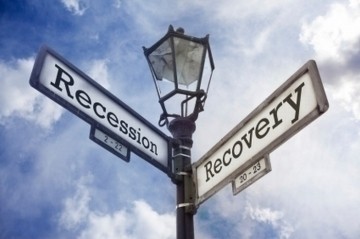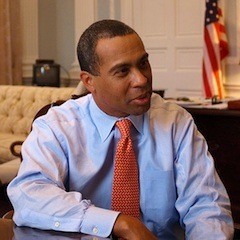Gov. Patrick’s 2014 Budget: Winners and Losers
Thursday, January 24, 2013

Patrick's $34.8 billion proposal represents a 6.9 percent increase over the current fiscal year, and it includes major investment initiatives in education and transportation, as well as $75.5 million in additional funding for innovation and job creation. It also features a reduction of the state sales tax rate from 6.25 percent to 4.5 percent and increase of the state income tax rate from 5.25 percent to 6.25 percent.
“This is a growth budget that makes investments in education and transportation to grow jobs in the near-term and strengthen our Commonwealth in the long-term,” Patrick said in a statement. “Each of us has a stake in promoting opportunity and prosperity throughout the Commonwealth, and each of us should contribute to improving it. And the number of new reforms we have also proposed continues our work to improve government performance and achieve savings.”
Proceeds from the reduced sales tax would be designated solely for the 10-year $13 billion transportation plan, the school building fund and other public infrastructure.
In an attempt to make the income tax increase more equitable across all of the Commonwealth's residents, Patrick proposed doubling personal exemptions for all taxpayers and eliminating several itemized deductions.
The Governor also called for the repeal of the sales tax exemption for candy and soda, a $1 increase to the cigarette excise tax to $3.41 per pack and increases in other tobacco product taxes to reflect the cigarette excise tax increases.

An "Aggressive" Budget

Michael Widmer, president of the Massachusetts Taxpayers Foundation (MTF), called Patrick's proposal "a very aggressive budget," due to its dependence on a large tax increase, a major reform of the state tax code, including the closing of 44 personal exemptions, and the heavy use of one-time funds.
"This budget does an awful lot in one bite in a fragile economic environment in terms of additional taxes," he said, noting that the proposed personal income tax increase would make the Commonwealth's income tax burden the highest in the country.
The focus on education funding, including $550 million in new targeted investments, will have a wide-reaching effect.
"Education is a major beneficiary," Widmer said. "Certainly the focus on public higher education is important becasue that's part of our economic future."
Massachusetts Budget and Policy Center President Noah Berger said that investment in people and infrastructure are the keys to long-term growth, and the tax changes in Patrick's budget would move the Commonwealth in the right direction.
"By making early education more accessible and college more affordable, they will help us build a better-educated workforce and improve the future prospects of our entire economy," Berger said.
The effect of the increased transportation funding, said Widmer, would be less broad since a significant portion would go toward eliminating the MBTA's current structural operating deficit. Devoting sales tax revenue to transportation was also somewhat problematic.
"We certainly woud favor an approach of transportation funding for transportation investment," he said, noting that an alternative approach that the MTF favored involved a nominal increase to the state's gas tax to reflect inflation.
While most of the programs across state government would see increases under Patrick's proposal, the bold plan is not without its drawbacks.
"The risk here is the Governor's trying to do too much in terms of funding everything across the budget," Widmer said.
"Patrick definitely deserves some credit for seeking to reduce the sales tax rate, but the same logic should have been applied to the income tax rate as well," said Paul Craney, executive director of the Massachusetts Fiscal Alliance.
The same goes for the repeal of the sales tax exemption on candy and soda, which Craney called "nothing more than a pure money grab."
Transportation and maintaining the state's existing infrastructure are critical to the Commonwealth's success. The issue, however, said Craney, lies in the plans to further expand the state's transportation system when population growth does not seem to support such a move.

Tax Impact

Like Widmer, Craney noted that MassDOT's transportation plan was presented with a number of possible revenue sources, including a gas tax increase and a regional payroll tax for transit authorities, but Patrick opted for the only non-user tax of the bunch in the form of the income tax.
The income tax hike would be the first for the Bay State in nearly two decades, harkening back to the income tax rates of the early 1990s, which contributed to the nickname of "Taxachusetts."
"Do we really want to be returning to those rates?" asked Craney.
While Craney maintained that the increased income tax would have a negative impact on all Bay Staters, Berger said that, in combination with the lowered sales tax rate, it would make the overall tax system more fair.
"In our current system, lower-income people actually pay a higher percentage of their income in taxes than high-income people," he said. "That would still be true under the Governor's plan, but lower-income people would pay slightly less than they do today, and higher-income people would pay more."
Patrick's proposals will still have to make it through the legislature, but the Campaign for Our Communities, a coalition that has pushed for increased investments in people and communities, said the Governor was off to a good start.
“We strongly support Governor Patrick’s commitment to increase investments in excellent schools, reliable transportation systems and a strong economy that provides good jobs. These investments are needed to ensure that Massachusetts continues to be a great place to live, work and raise a family,” said Andi Mullin, director of the Campaign for Our Communities.
Related Articles
- Impact Of Patrick’s Deregulation On Small Businesses
- NEW: Gov Patrick Calls for In-State Tuition for Illegal Immigrants
- NEW: Gov Patrick Calls for Income Tax Hike, Sales Tax Cut
- NEW: Gov Patrick Cuts Budgets to Close $540 Million Shortfall
- NEW: Gov. Patrick Announces Tax Collection Deal With Amazon
- NEW: Gov. Patrick Files Gun Safety Legislation
- NEW: Patrick Has “Mixed Feelings” About Murray’s Decision




Follow us on Pinterest Google + Facebook Twitter See It Read It